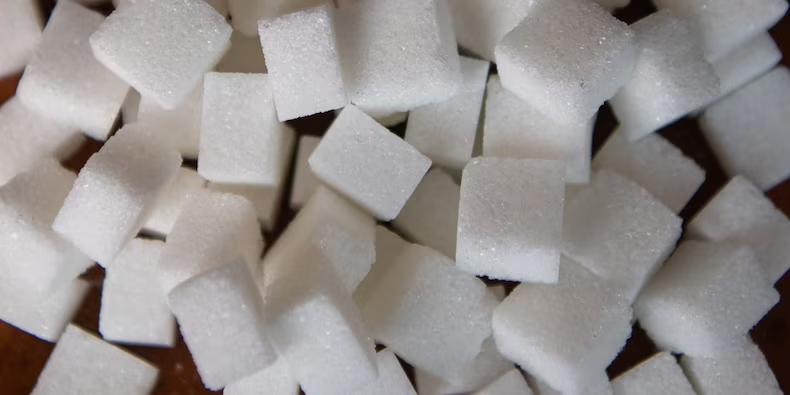The writing below is an IELTS Writing sample sugary products and prices topic. This topic is taken from the Cambridge IELTS book 16.
This sample is written by IELTS with Huyen and is meant for reference only. Copyright belongs to IELTS with Huyen and Practice9 IELTS.
More samples and quizzes with highlighted vocabulary and grammar for FREE by joining our IELTS Preparation services.
IELTS Prep Packages with Writing and Speaking
IELTS Speaking Evaluation (one-on-one)
Full-skill IELTS Mock Exam with evaluations (one-on-one Speaking)
Topic and question
Many manufactured food and drink products contain high levels of sugar which causes many health problems. Sugary products should be made more expensive to encourage people to consume less sugar.
Do you agree or disagree?

With this question, you must present a strong opinion (agree or disagree) and explain it in detail with relevant examples.
You must also stay on-topic by tackling the argument (increasing prices of sugary products to discourage people from eating sugar).
This is a one-sided essay (completely disagree). Be careful when you go 50-50 as your opinion may appear weak.
IELTS Writing Sample
The excessive sugar content of many processed foods and beverages is the cause of a variety of health problems. Increasing the prices of sugary food is seen to be a way to discourage individuals from consuming it. From my perspective, I firmly disagree with this idea.
Firstly, the delightful flavors and ease that manufactured sugary foods and beverages provide are the primary reasons for their widespread consumption, not only the price. As a result, even if these goods become more expensive, consumers, particularly affluent individuals, will continue to choose them as long as the taste remains appealing, and they can be prepared quickly. Take sugary ice cream as an example, this dessert is renowned for its particularly excellent taste that can please people of all ages, and it is a more convenient purchase as preparing the same food from scratch, it would take a few hours. If given the choice, the average person would always prefer the readymade one over the fresh one.
Secondly, raising the prices of these foods and beverages will disproportionately affect low-income individuals because these goods are popular not only because they are tasty, but also because they are inexpensive. It is evident that a large proportion of the world’s population finds healthy fresh meals and beverages unaffordable, leaving them with no choice but to select processed foods and drinks rich in sugar, despite being fully aware of the health complications. In Mexico, for example, a 300ml Coca-Cola can costs less than half the price of a 300ml bottle of water. If the price of this soft drink rose, Mexicans would find themselves in a crisis where they could afford to drink neither water nor Coca-Cola.
In conclusion, even though the high quantities of sugar in manufactured food and drink products cause various health issues, I strongly oppose the idea that making these goods expensive will induce people to consume less sugar. Unless these edibles and beverages lost their tasty and convenient nature, people would continue to consume them no matter what. Furthermore, the increased prices would drive low incomers into a bigger struggle than the one they are already facing.
(355 words)
Highlighted words and phrases (based on context)
Appealing (adjective): Attractive or pleasing.
Beverages (plural noun): Drinks.
Consume (verb): Eat or drink.
Consumers (plural noun): People who buy and use products.
Consumption (noun): Act of eating or drinking.
Delightful flavors (noun phrase): Pleasant tastes.
Discourage (verb): Make someone less willing to do something.
Drink products (noun phrase): Beverages.
Ease (noun): Comfort and simplicity.
Edibles (plural noun): Food items.
Edibles (plural noun): Food items.
Health complications (noun phrase): Medical problems or difficulties.
Health problems (noun phrase): Medical issues affecting well-being.
Induce (verb): Persuade or bring about a certain action.
Inexpensive (adjective): Not costing much.
Issues (plural noun): Problems or concerns.
Lose their tasty and convenient nature (verb phrase): Ceased to have enjoyable and easily usable qualities.
Low incomers (noun phrase): People with low incomes.
Low incomers (noun phrase): People with low incomes.
Manufactured food (noun phrase): Processed or factory-made food items.
Manufactured sugary foods (noun phrase): Processed sweet food products.
Perspective (noun): A point of view or way of looking at things.
Primary reasons (noun phrase): Main causes.
Processed foods (noun phrase): Food items that have undergone various methods of preparation and are often not in their natural state.
Processed foods (noun phrase): Food items that have undergone various methods of preparation and are often not in their natural state.
Proportion (noun): A part or share of a whole.
Quantities (plural noun): Amounts or measures of something.
Rich in sugar (adjective phrase): Having a high content of sugar.
Rose (verb): Past tense of “rise,” meaning to increase in value or quantity.
Struggle (noun): Difficult effort or challenge.
Struggle (noun): Difficulty.
Sugar content (noun phrase): The amount of sugar present in something.
Sugary food (noun phrase): Food high in sugar content.
Tasty (adjective): Having a pleasant flavor.
Unaffordable (adjective): Too expensive to buy.
IELTS writing sample sugary products











Responses